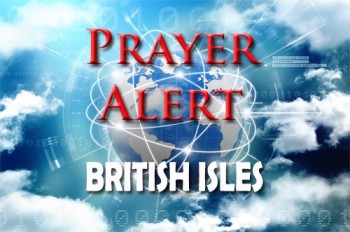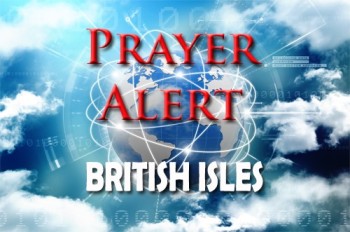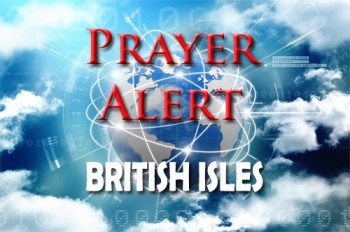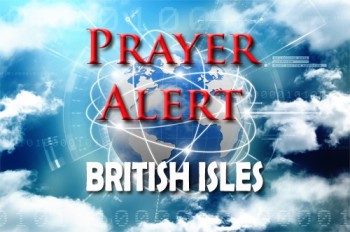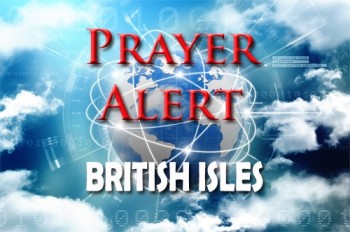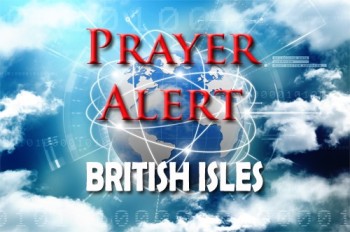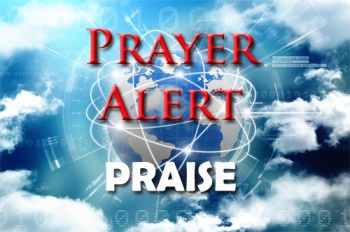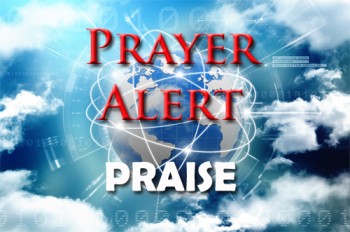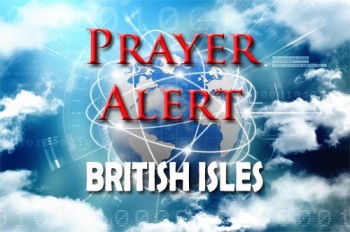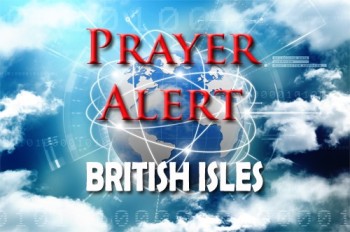
Displaying items by tag: United Kingdom
Children feared among three dead in Channel crossing attempt
Three people, possibly including children, have died attempting to cross the English Channel near Calais, French authorities confirmed. The victims, believed to be from Egypt and South East Asia, were among more than seventy people crammed onto an overloaded boat. Officials said they were likely crushed to the bottom of the vessel. While 44 passengers were rescued, three later died in hospital. On the same night, another 115 people were rescued from a separate boat - one of the largest groups recorded - while three remain missing from a different vessel. This year alone, over twenty migrants have died making the perilous crossing; 2024 was the deadliest year on record, with at least 82 deaths. More than 30,000 people have already reached the UK in small boats this year. The tragedy has renewed scrutiny of people-smuggling gangs and the UK’s asylum system. New home secretary Shabana Mahmood has vowed to prioritise border security and tackle traffickers driving the crisis.
Two candidates left for Labour deputy leadership
The Labour Party’s deputy leadership contest is narrowing to a likely two-horse race between Bridget Phillipson and Lucy Powell. Education secretary Phillipson became the first candidate to secure the required 80 nominations, with 116 backers including three cabinet ministers. She has emphasised immigration and border security as key concerns for voters, particularly in constituencies vulnerable to Reform UK advances. She highlighted her record of defeating populist opponents and promised to 'give hope' by tackling small boat crossings and improving public services. Powell, with 77 nominations, has drawn support from left-leaning MPs, presenting herself as more available for campaigning than a serving minister. Other contenders failed to gain sufficient momentum. While critics fear Phillipson may be seen as a Downing Street-backed 'coronation' candidate, her supporters argue she represents unity and strength. Meanwhile, Keir Starmer faces further scrutiny over his political judgment after he sacked Lord Mandelson as British ambassador to the USA, following the publication of email messages to Jeffrey Epstein. See
Support for monarchy at record low, ahead of Trump state visit
Public support for the monarchy has dropped to its lowest level since records began in 1983, according to the British Social Attitudes survey. The share of people saying the monarchy is important has fallen from 86% in 1983 to just 51% in 2024. While more than half (58%) still prefer retaining the monarchy over replacing it with an elected head of state, the gap is narrowing, with 38% now favouring abolition. Younger and left-leaning people are most likely to support change, while older, right-leaning voters remain the strongest backers. Among party supporters, Conservatives (82%) and Reform UK (77%) show the highest loyalty to the crown, while Labour members are almost evenly split. In Scotland and Wales, most respondents favour an elected head of state. The findings, released ahead of Donald Trump’s state visit to Windsor Castle in September, underline a shifting national mood.
Trussell Trust: autumn budget must deliver urgent action on hunger
The Trussell Trust is calling for urgent government action in the autumn budget to tackle soaring hunger across the UK. Its landmark study, Hunger in the UK, reveals that 14.1 million people, including 3.8 million children, faced hunger in 2024 due to insufficient income. This represents one in six households, and is a rise from 11.6 million in 2022. Foodbank reliance is growing, but many go without help, believing others are in greater need. The crisis hits children under five and disabled people hardest, with nearly three quarters of foodbank users living with disabilities. Alarmingly, 30% of those referred are from working households, showing that employment is no safeguard against hardship. Universal Credit is failing to protect families: over half of recipients experienced hunger last year. With households left with only £104 a week after housing, Trussell says poverty is about income, not food supply. They urge scrapping the two-child limit, reforming Universal Credit, and uprating Local Housing Allowance to prevent hunger from becoming routine.
Sinn Féin: PSNI ‘must do more’ to tackle racist mobs
Sinn Féin has called on the PSNI to do more to tackle racist mob violence after migrant workers were attacked at Connswater Retail Park, east Belfast. Video footage showed two cars surrounded and damaged by a group of men, in what police are treating as racially motivated hate crimes. Although PSNI officers were present, they did not intervene, saying they were conducting an 'evidence-gathering operation’. The response has sparked outrage. Green Party councillor Brian Smyth warned that rising vigilante patrols targeting migrants risk someone being killed, describing the Connswater incident as an attempted 'racial lynching.' He said migrants are now 'living in terror' in their homes. Sinn Féin condemned the 'deplorable attack' and urged immediate arrests, insisting vigilante violence 'has no place in society’. The police have pledged to increase patrols to reassure the community and challenge racist groups. Chief Inspector Louise Dunne said that those involved lack any 'legal or moral authority' and are spreading fear rather than protecting communities.
‘Non-religious’ Brits believe in God or afterlife
A new study reveals surprising levels of spiritual belief among Britons who identify as 'non-religious’. While 46% of the population now describe themselves this way, a quarter of this group still believe in God or a higher power. Broadened to include belief in 'something beyond the natural world,' the figure rises to 45%. One third (33%) of non-religious respondents also believe in some form of afterlife. Interestingly, some who identify with a religion see it only as cultural, with 15% denying belief in God. The findings align with this year’s Bible Society research showing a 'quiet revival’ and Youth for Christ data indicating over half of young people are open to spirituality. Dr Rob Barward-Symmons of the Bible Society suggests rising interest reflects a backlash against loneliness in the digital age, with young people particularly seeking meaning and healing. Analysts see opportunity for Christians to share the gospel with a generation searching for truth and hope.
Miracle healings as 40,000 Christians gather
At London’s ExCeL Arena, 40,000 believers joined Pastor Jerry Eze’s New Season Prophetic Prayers and Declarations conference, the UK’s largest Christian gathering this year. The six-hour event was marked by fervent worship, bold declarations, and testimonies of God’s power. Ministers stirred the crowd with faith-filled proclamations, urging worshippers to believe that walls of opposition had fallen and breakthroughs were imminent. Attendees testified of God’s intervention: a woman finally received her UK visa after years of denials; a nurse cleared of false accusations unexpectedly found a husband after decades of waiting. Worship leader Dunsin Oyekan led participants to lift prayer requests - contracts, photos, and lists of 'new beginnings' - as symbols of faith. The highlight came as miraculous healings unfolded: wheelchair users walked, crutches were discarded, and stroke survivors stood unaided, tumours dissolved, and sight and mobility were restored. Amid rejoicing, Pastor Eze declared: 'What God cannot do does not exist’. The event concluded with thousands of voices shouting 'Amen' to his promise that next year’s greatest testimonies had already begun.
A charity is giving people money to stop homelessness
A pioneering UK charity, Greater Change, is transforming lives by giving direct financial support to people facing homelessness. When single mother Laura Burns was threatened with eviction due to debts and moving costs, she received £600 almost instantly, enabling her to secure a new home. Today, she has a job, a fiancé, and renewed hope. Greater Change’s approach is simple yet radical: provide people with dignity and choice, allowing them to use funds for deposits, bills, or debts. Since January, the charity has distributed £699,000 to 403 people, with 86% moving into stable housing and almost half gaining employment. Critics fear misuse of funds, but international studies show that recipients rarely spend on harmful addictions. Instead, they invest in rebuilding their lives. Partnering with councils, philanthropists, and grant bodies, Greater Change saves taxpayers thousands per client by preventing homelessness before it becomes entrenched. For many, even modest grants are life-changing interventions at the right moment, offering stability, opportunity, and hope.
National Week of Prayer
From 6 to 14 September, Christians unite in the National Week of Prayer (NWoP) under the call 'Gather, remember, return'. Inspired by Zechariah 1:3, the vision is to humble ourselves, repent, and seek God’s presence for national transformation. Over 115 prayer gatherings are already confirmed - from Bristol to Blackpool, Jersey to the Isle of Man - with more registrations daily. Activities range from inter-church meetings and workplace prayer groups to early morning breakfasts and online sessions. Ministries and networks are laying aside busy agendas to come together in worship, thanksgiving, and intercession, celebrating the good things God has done and continues to do in the nation. Organisers see NWoP as part of a growing spiritual awakening and an answer to Jesus’ prayer for unity in John 17:21. Believers are encouraged to join existing events or start their own, making prayer a visible wave of oneness rising across the UK and beyond. See (https://worldprayer.org.uk/events/nwop-revival-prayer-hour/) Also see (https://www.24-7prayer.com/weekofprayer/)
Reeves rejects claims of £50bn 'black hole' in finances
Rachel Reeves has dismissed claims that she faces a £50 billion 'black hole' in the public finances. She insisted that reports about massive funding gaps were exaggerated, saying many commentators were 'talking rubbish'. Concerns rose this week as long-term government borrowing costs hit a 27-year high, sparking fears of tax hikes or spending cuts ahead of the 26 November Budget. Reeves emphasised her commitment to two borrowing rules: that day-to-day spending must be funded from tax income by 2029–30, and that debt must fall as a share of national income within this parliament. While she ruled out tax rises on VAT, National Insurance, and income tax for working people, speculation continues over possibly targeting property, banks, and other sectors. She rejected talk of an IMF bailout, and promised to strike a balance between funding public services - particularly the NHS - and encouraging growth, saying there are already 'positive signs' in the economy. See https://news.sky.com/story/interest-rates-considerably-more-doubt-over-future-cuts-bank-of-england-governor-warns-13424292

